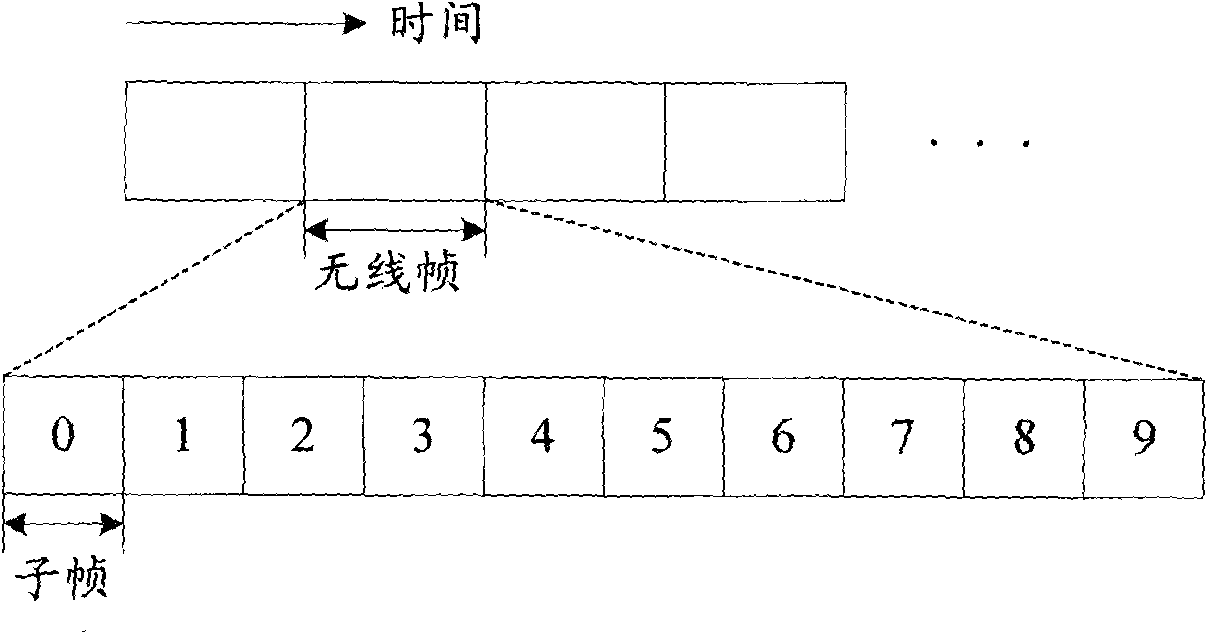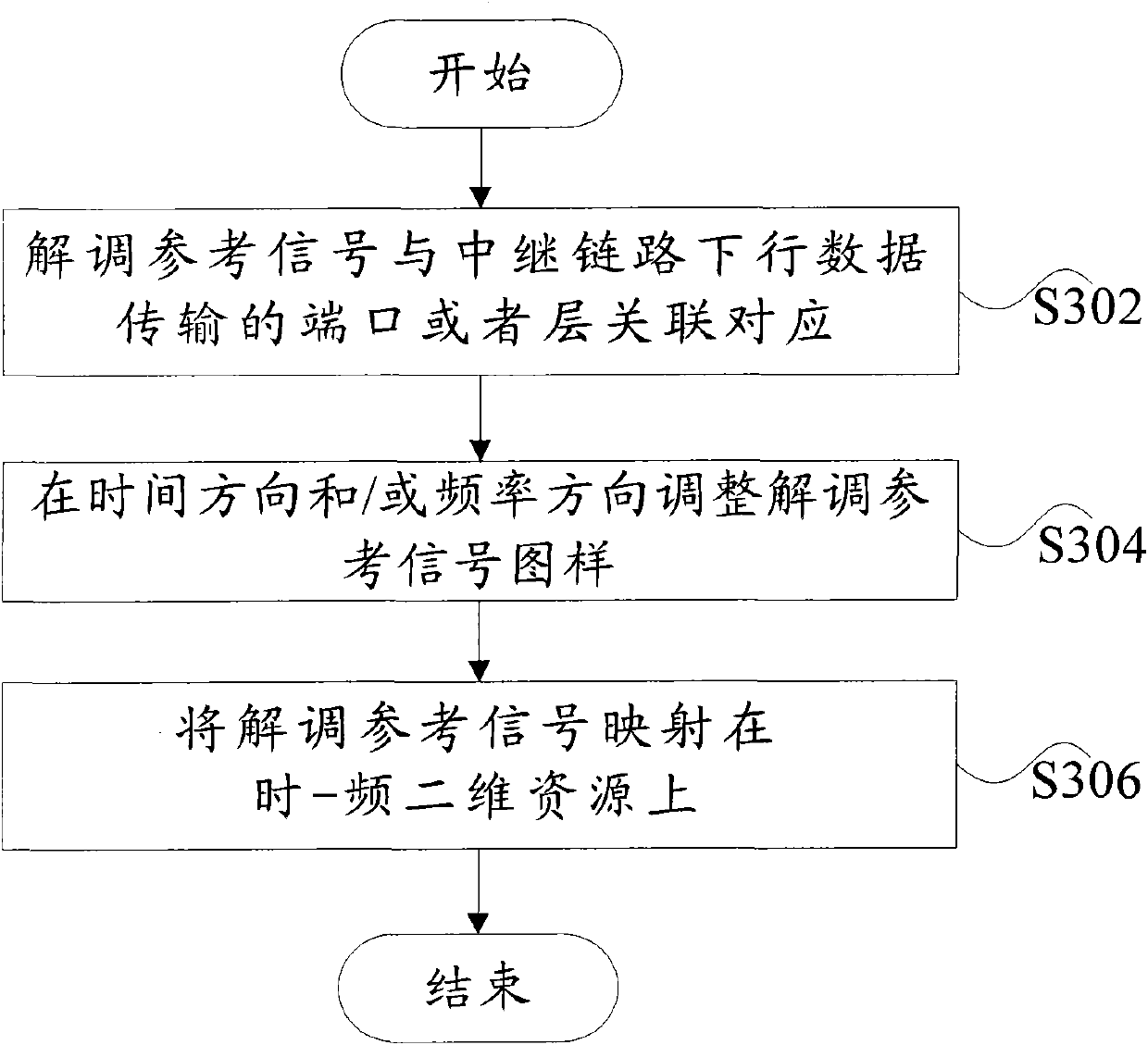Method and device for transmitting downlink demodulation reference signals of relay link and relay system
A technology for demodulating reference signals and relay links, which is applied in the field of wireless communication, can solve problems such as unproposed solutions and undeveloped relay links, and achieve the effect of reducing overhead and ensuring reliability
- Summary
- Abstract
- Description
- Claims
- Application Information
AI Technical Summary
Problems solved by technology
Method used
Image
Examples
example 1
[0097] In Example 1, it is assumed that the DMRS described in the present invention is used for demodulation of the R-PDCCH, and it is assumed that the transmission of the R-PDCCH occupies a part of the OFDM symbols transmitted from the base station to the relay station in the relay subframe. Specifically, it is assumed that the number of OFDM symbols occupied by R-PDCCH transmission is N R-PDCCH , where N R-PDCCH It can be set dynamically or semi-statically by the base station according to the capacity of the control channel of the relay link; it can also be agreed between the base station and the relay station, that is, set statically. Assuming a dynamic or semi-static setting of N R-PDCCH When the value of N R - PDCCH min ≤ N R - PDCCH ≤ N R ...
example 2
[0120] Under the assumption of Example 1 and the DMRS design principle, when the number of OFDM symbols occupied by R-PDCCH is configured dynamically or semi-statically, or the number of OFDM symbols occupied by R-PDCCH is configured statically, another example of a DMRS pattern is as follows Figure 7 , 8 , as shown in 9. It is still assumed that when the number of OFDM symbols occupied by R-PDCCH is dynamically or semi-statically configured N R - PDCCH min = 3 , N R - PDCCH max = 4 ; When the number of OFDM symbols occupied by R-PDCCH is statically set N R-PDCCH value of N R - PDCCH static = 3 ...
example 3
[0140] Under the assumption of Example 1 and the DMRS design principle, when the number of OFDM symbols occupied by the R-PDCCH is dynamically or semi-statically configured, or the number of OFDM symbols occupied by the R-PDCCH is statically configured, the present invention provides another DMRS design method and Pattern example.
[0141] The design principle of the DMRS in this example is to design the pattern of the DMRS for the case where the system bandwidth is greater than 10 RBs. When the system bandwidth is less than or equal to 10 RBs, if the relay station cannot receive some OFDM symbols mapped with DMRS, the DMRS pattern when the system bandwidth is less than or equal to 10 RBs is to remove the unreceived symbols on the basis of the original DMRS pattern DMRS.
[0142] For example, suppose the number of OFDM symbols occupied by R-PDCCH is set statically, that is, the number of OFDM symbols occupied by R-PDCCH is agreed between the base station and the relay station...
PUM
 Login to View More
Login to View More Abstract
Description
Claims
Application Information
 Login to View More
Login to View More - R&D
- Intellectual Property
- Life Sciences
- Materials
- Tech Scout
- Unparalleled Data Quality
- Higher Quality Content
- 60% Fewer Hallucinations
Browse by: Latest US Patents, China's latest patents, Technical Efficacy Thesaurus, Application Domain, Technology Topic, Popular Technical Reports.
© 2025 PatSnap. All rights reserved.Legal|Privacy policy|Modern Slavery Act Transparency Statement|Sitemap|About US| Contact US: help@patsnap.com



